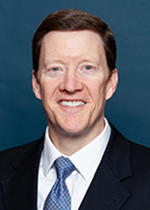
In large association membership meetings or conventions, it is common to find someone serving as parliamentarian (whether a member or outside credentialed professional). A question I’m often asked, though, is “Does our board meeting need a parliamentarians”? (For purposes of full disclosure, I’m an attorney, Certified Professional Parliamentarian, Professional Registered Parliamentarian, past President of the American College of Parliamentary Lawyers, and author of two books on meeting procedure.)
A parliamentarian is simply an adviser to the presiding officer and other officers, committees and members on matters of meeting procedure. There is no one-size-fits-all answer, but:
- The president and board members need to understand enough about parliamentary procedure to do their jobs properly. Some states mandate that in certain types of organizations (think homeowner or condominium associations or governmental bodies) membership and board meetings follow a particular parliamentary book, such as the latest edition of Robert’s Rules of Order. Some governing documents do as well, which would be a contractual obligation. Even without such language, almost all meetings that conduct business must adhere to certain fundamental meeting procedures. As a result, association leaders have an obligation to learn basics of meeting procedure, just as they do with other aspects of the association, such as becoming familiar with the organization’s governing documents, finances, etc.
- Parliamentarians can be an outside professional or simply a member who assists with procedural questions. Different circumstances call for different levels of experience, just as certain issues may require the assistance of an attorney and others do not.
- Even if your association follows Robert’s Rules of Order Newly Revised (11th Edition), the rules for boards smaller than about 12 is quite relaxed and not nearly as formal as for larger membership meetings. Smaller board rules include not having to be recognized to speak, no seconds to motions, no limit to debate, the chair is a full participant, etc. Here are two articles that may be of interest: Board Procedures Versus a Membership Meeting or Convention and Meeting Myths. Because of these relaxed procedures, a board is less likely to need an outside professional parliamentarian at meetings (but a member parliamentarian might be of great value given the size of association, issues considered, etc.)
- For particularly contentious or complicated membership meeting issues, a professional parliamentarian may be advisable. An outside professional is also sometimes used used as a professional presiding officer for meetings. In such instances, different parliamentarians have different credentials and experience, so it is worthwhile to track down the right type of parliamentarian for the circumstances (and there are websites that can help with that). Our firm is currently handling several meeting legal issues that could have been prevented at very little cost if a good parliamentarian had simply advised on the right procedure on some significant motions (director removal, large assessments, etc.). Rather than resolving errors after they have occurred, a good parliamentarian should prevent meeting problems from even occurring.
As a takeaway, here are some additional resources (with a particular focus on HOA/condos):
For general information on HOA/condo meeting procedure, check out the online CAI manuscript, Running a Darn Good Meeting: What You Need to Know About Parliamentary Procedure.
You may also wish to take a look at my latest two books on meeting procedure, both updated for the new Robert’s Rules of Order Newly Revised (12th Edition). The books have a different purpose and different audiences (and the links that follow will take you to reviews of the books).
Robert’s Rules of Order Fast Track is a quick go-to guide that provides details on the most used motions, appropriate informal procedures for smaller boards, and general advice for shortening meetings. It was the #1 “hot release” in its Amazon category, as small a category as that might be. A recent review of the book can be found at Book Review: Run, Don’t Walk, to Buy Robert’s Rules of Order Fast Track.
Notes and Comments on Robert’s Rules, Fifth Edition is a user’s guide to Robert’s Rules that uses questions-and-answers to cover the most misused and asked-about provisions, including those that apply to larger membership meetings. Notes and Comments has received the Phifer Award from the National Communication Association.
The reviewing side of Publisher’s Weekly recently posted great reviews of both books, and each was selected as an “Editor’s Pick,” which is described as “a book of outstanding quality.” If of interest, the reviews can be found at Reviews are in for New Parliamentary Procedure Books!
Both books are available traditional and online bookstores, including Amazon, as well as electronically for the Kindle, Nook and iPad.
There are also many free charts and articles on Robert’s and meeting procedure at www.jimslaughter.com. Our firm’s HOA/condo blog often discusses procedural issues and can be found at www.lawfirmcarolinas.com/blog/category/homeowner-condo-association.

